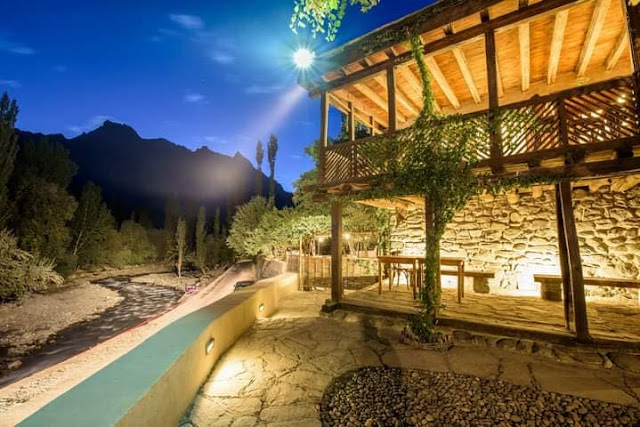If you're in Gilgit Baltistan for the first time, you can
visit, Deosai , the Shigar fort, Khaplu
Valley ,Nanga Parbat and Hunza valley.
Deosai
If you are looking for a place to escape the city
life, you should consider visiting Deosai. This plateau is home to the
endangered Himalayan Brown Bear. Visitors can hike and watch the animals at
close quarters. For a more adventurous experience, you can go bear watching, or
fishing in the Barwai Stream. Once you have finished enjoying the natural
beauty of Deosai, you should return to Gilgit and explore its beautiful old
towns.
The name of the region derives from a folk tale and poem written by Mian Muhammad Baksh. It means 'Shadow of the Giant.' This place is surrounded by snow-capped mountains, and it is a popular destination for mountain climbers. There are many beautiful buildings, as well as fishing, skiing, and historical sites to explore.
Shigar fort
One of the most scenic and quaint areas of Gilgit
Baltistan is the village of Shigar. Its turquoise-green river flows through a
valley called Shigar Valley, known locally as "The Place on Rocks".
You'll find the Shigar Fort here, a beautiful combination of culture and
entertainment. Afterwards, visit the Amburik Mosque, the oldest mosque in
Baltistan. Its woodwork and architecture are a sight to behold.
The town of Shigar is situated a few kilometers from Skardu. This historic fort was recently renovated according to scientific guidelines, while still maintaining its historical and cultural value. You'll find comfortable accommodations in Shigar, a charming town in the midst of the mountains. The Shigar valley is split into two valleys - the Basha valley and the Braldu valley. In the west, Askoli is the last village before hiking on the Baltoro glacier.
Khaplu Valley
Khaplu is a beautiful valley in Baltistan, Pakistan. It is situated at
an altitude of 3,500 meters and has a population of about 4,000 people. The
valley is surrounded by the Khaplu Valley National Park which was established
in 1998.
The place has been inhabited for centuries and is known for its scenic beauty with its towering peaks and deep valleys. Khaplu valley is also home to many ancient Buddhist monasteries.On the way there is a beautiful valley called Barah valley this place is also amazing nature we will explore later this valley in nest post.
Hunza valley
A trip to the Hunza valley is an adventure that you
should not miss. You will be able to hike through the snowy landscape and see
awe-inspiring sites. You will have to cross the Minapin Glacier to get to the
basecamp of the famous Diran Peak. For safety reasons, you should have a local guide
to help you during your trek.
The enchanting Hunza valley offers visitors a breathtaking landscape that is unique from any other place in the world. The mountains are a stunning backdrop for an evening stroll through the valley. Some of the most notable sights include the magnificent Rakaposhi, which is 7,788 meters high. It can be seen from many points throughout the valley, including the Hunza itself. You can even see following glaciers and other peaks surrounded by snow.
Nanga Parbat
Rama Lake is one of the most popular places in
Gilgit Baltistan, and the icy climate in the winter can be a real challenge.
The nearby Astore town provides an excellent base for outdoor activities, and
the broad area starting from Nanga Parbat is packed with attractions for
adventurers and tourists alike. This is the perfect location for
mountaineering, hiking, and skiing.
If you want to see Nanga Parbat up close, you should hire a guide. Abdul Bari Rana, founder of Lost Horizon Treks and Tours, is one of the most experienced guides in Northern Pakistan. He has been involved in tourism for more than twenty years, and is from the village of Chorit, located at the base of Nanga Parbat. Abdul Bari speaks English, Shina, and Punjabi, as well as the local language of Borusha.











0 Comments